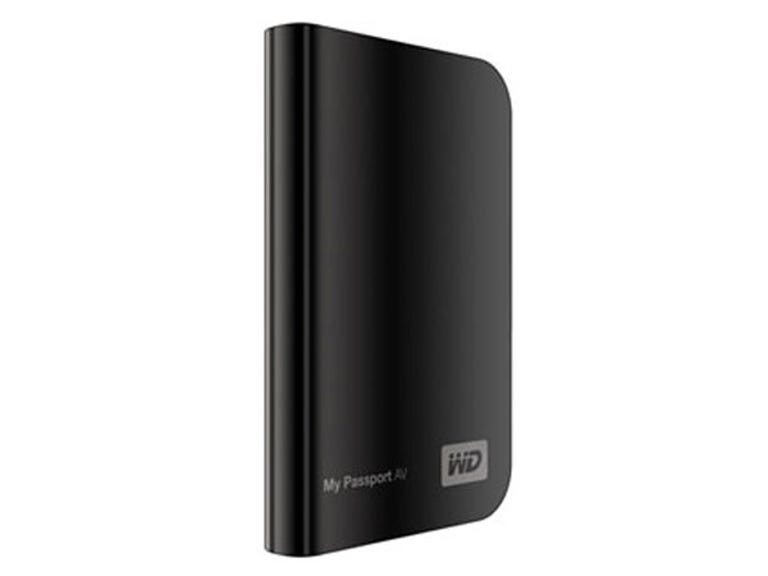 Why You Can Trust CNET
Why You Can Trust CNET Western Digital MyPassport AV 320GB review: Western Digital MyPassport AV 320GB
Should you buy an AV-specific USB 2.0 external hard drive? In a word, no.
Design
We're always a little wary when we come across ordinary storage media that's been branded for a specific use. Aside from specific situations where only a terribly specific drive type will in fact work — we're casting a nasty glance in your direction, TiVo — for most cases a decent drive of any type will work. Most systems won't have specific hardware in place to take advantage of other "specialised" features…if they exist at all!
The Good
The Bad
The Bottom Line
It was thus with some trepidation that we unpacked Western Digital's MyPassport AV 320GB drive. It's ostensibly an external USB 2.0 drive that's apparently "optimised" for video storage and playback. Quite how it's optimised isn't made entirely clear, and our alarm bells were ringing when we pulled it out of the box and realised that, aside from a vertical stand, it would be tough to differentiate this drive from any other Western Digital MyPassport Essential drive.
Features
The MyPassport AV 320GB drive comes with…wait for it…320GB of storage. Are you excited yet? You're going to need to be, because from a software point of view, that's it. Unlike just about every other external hard drive on the market, including most of Western Digital's range, there's no other bundled software at all. That does free up some space on the drive, but if you were after a backup solution, you'll have to purchase that separately.
Western Digital's claim for the MyPassport AV is that it runs cooler and uses up less power than comparable USB 2.0 external hard drives. We can see the general utility in that, especially if you were pairing it up with a USB compatible AV product such as a PS3 or Xbox 360, both of which can run quite hot in a confined AV cabinet.
Performance
The point of an AV-specific drive should be AV and here we've got to give Western Digital a somewhat begrudged tick. We hit no problems with AV playback connecting up to an Xbox 360 and the drive did indeed run cool. We're not convinced, however, that this was markedly different to our experience with a regular USB hard drive and AV playback, as we could do the same thing with the same equipment and a regular hard drive.
One neat trick that the MyPassport AV promises is the ability to hook up your camcorder directly to the drive for file storage, although this is limited to Sony camcorders with Direct Copy functionality built in. Lacking such a camcorder for testing, we'll have to take Western Digital's word for it.
What we could test was average copy and write speeds and here the MyPassport AV lagged badly. Average read speed of 36.6MB/s was perfectly acceptable, and tallies up nicely with our experience playing back media from the drive. Once you want to drop files onto the drive for later watching, though, you're going to need some patience. A 499MB AVI file copied to the drives at a relatively slow 22.68MB/s, and switching to a 1.66GB folder of files saw copy speeds drop to 19.91MB/s. USB 2.0 drives tend to have mostly identical performance with the bottleneck at the USB 2.0 end, but the MyPassport AV sat at the lower end of those speed expectations.
Conclusion
It does run cool and that's nice, but beyond that, we can't see too many reasons to buy such a specifically targeted device when similar units have better performance, more storage and better software bundles.


